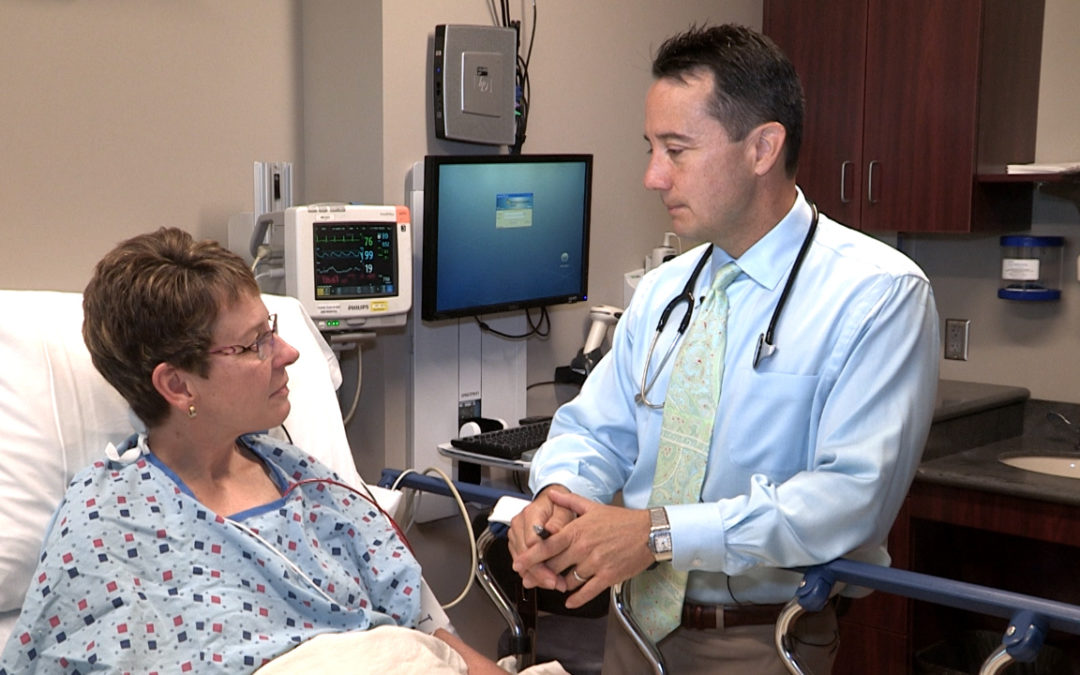
Could an Ongoing Cough or Chest Cold Be Asthma?
People are often surprised when I mention my concerns for asthma because they haven’t thought of this. Their symptoms make them think of other illnesses, but not asthma. It is true that asthma symptoms can often be similar to other illnesses.
Symptoms of Asthma
- Persistent cough or chest congestion
- A cold that simply will not go away or that lasts many weeks
- Symptoms that seem to reoccur every now and then on an ongoing basis, or may be related to the season such as cold weather, an infection or activities such as exercising
- Wheezing
- Shortness of breath or chest tightness
Medical History: The First Step to Uncovering Asthma
When I see patients with these symptoms, we perform a careful medical history. We determine if other diagnoses—such as lung disease, cardiac disease, chronic sinus disease and acid reflux—can be excluded because symptoms of these diseases may mimic asthma.
We discuss:
- Their cough
- Other symptoms they may experience, such as shortness of breath or chest tightness
- Whether or not they wheeze
- Symptoms of chest colds where people develop upper respiratory infections, which seem to always go straight to their chest and may last several weeks or even months
Often, these patients have been treated in the past for these symptoms with multiple cycles of antibiotics. These symptoms continue to occur over a number of years or may fail to improve, and patients become tired of dealing with this and are referred to me by their provider because of the persistent nature of their symptoms.
How to Test for Asthma
There are several tests that can help determine if a patient has asthma. These include:
- Pulmonary Function Testing or Spirometry: This is a test where you forcibly exhale into a device that measures airflow over time. The values of the test (or ratios) are then used to determine whether or not you have an airflow obstruction, which is a characteristic of asthma. If mild airflow obstruction is found, patients are given a medication or bronchodilator to see if this will reverse the symptoms. If the symptoms can be reversed, this would indicate asthma
- Challenge Test or Methacholine Challenge Test: This is a test to see if this reverses symptoms
- Lab Tests: These tests look for eosinophils or IgE level, which play a role in inflammatory asthma
- Chest X-Rays: These are helpful to rule out other illnesses, such as lung disease, fluid around the lung, congestive heart failure, infections and other diseases
- Allergy Testing
While one test cannot completely diagnose asthma, an evaluation of your history combined with tests can lead to an asthma diagnosis.
If a patient is diagnosed with asthma, education is important. Patients need to understand that asthma is a condition that does not just go away. Although this can be discouraging for patients, as a doctor, it is rewarding to let patients know we can offer treatment to really minimize their symptoms.
How to Treat Asthma
Options include:
- Inhaler therapy, especially with the use of an inhaled corticosteroid, which reduces inflammation and minimize asthma symptoms
- Medication (either alone or combined with an inhaler)
- New therapies are available for patients with moderate to severe asthma, which can significantly improve asthma symptoms and quality of life
Next Steps For Those with Asthma Symptoms
If you have a persistent cough, wheezing or repeated chest colds, you may want to consider if this could be asthma and talk to your doctor. At Bryan Health, we have a new Asthma Clinic that can:
- Evaluate symptoms
- Provide needed testing
- Recommend effective treatment options and education, if needed

John Trapp, MD
Health Expert
John Trapp, MD, is a pulmonologist with Nebraska Pulmonary Specialties.
Explore Your Options at Bryan Health
To learn more about the Bryan Asthma Clinic and schedule an evaluation, call 402-481-8901 or visit the link below.



























